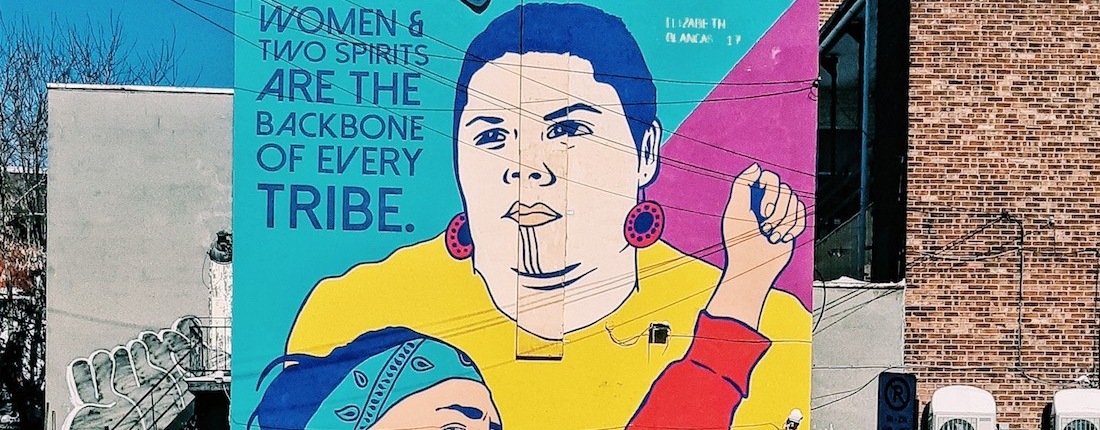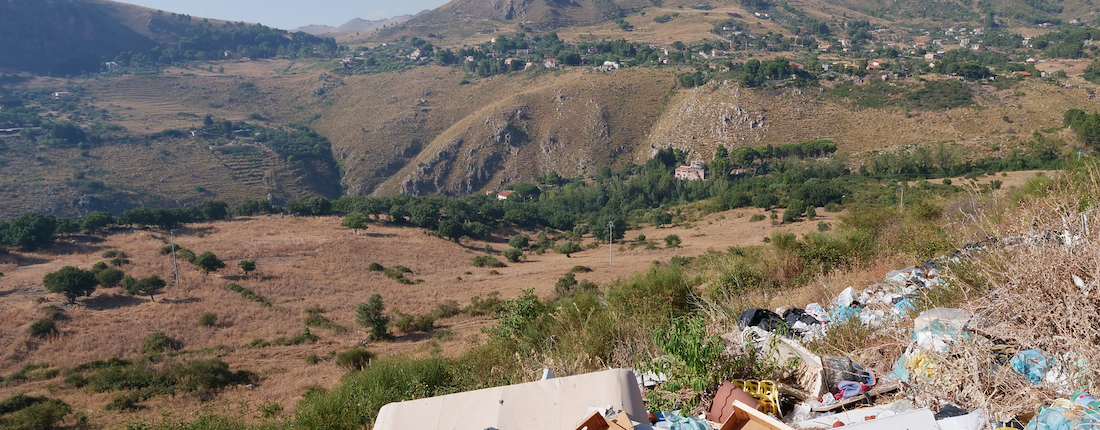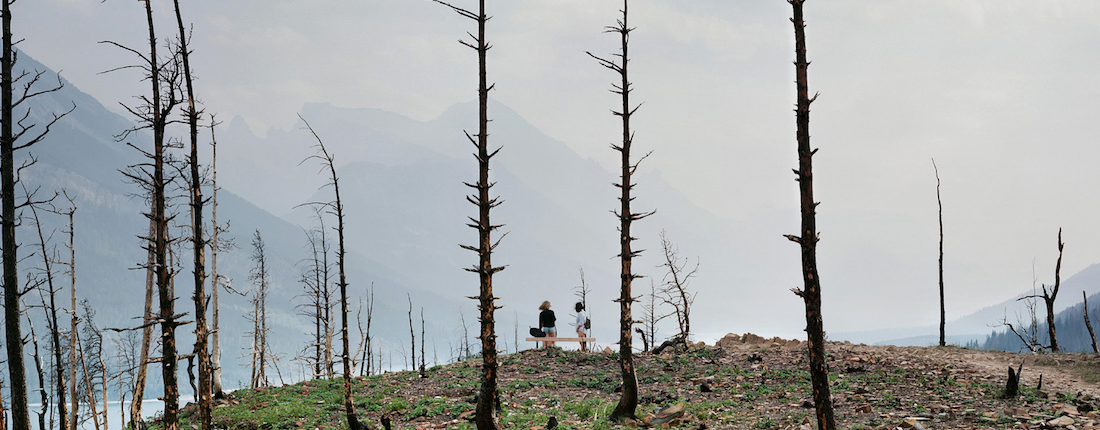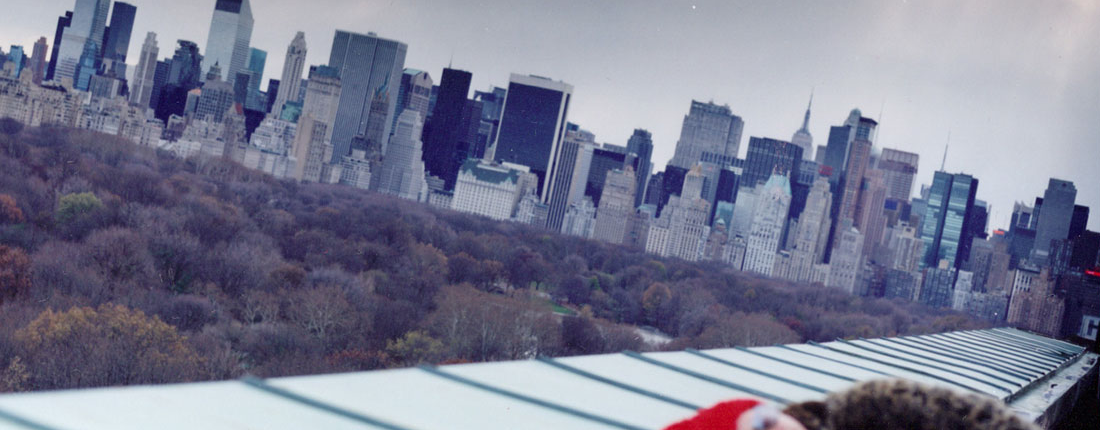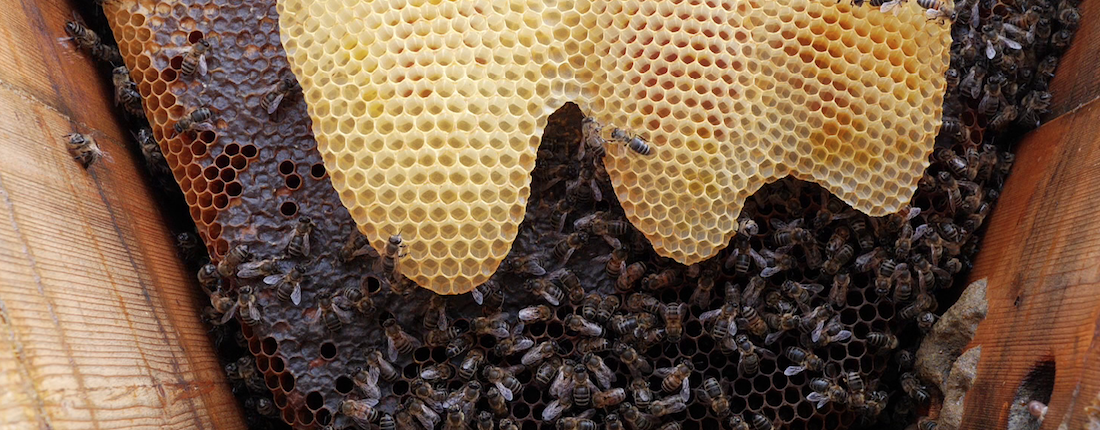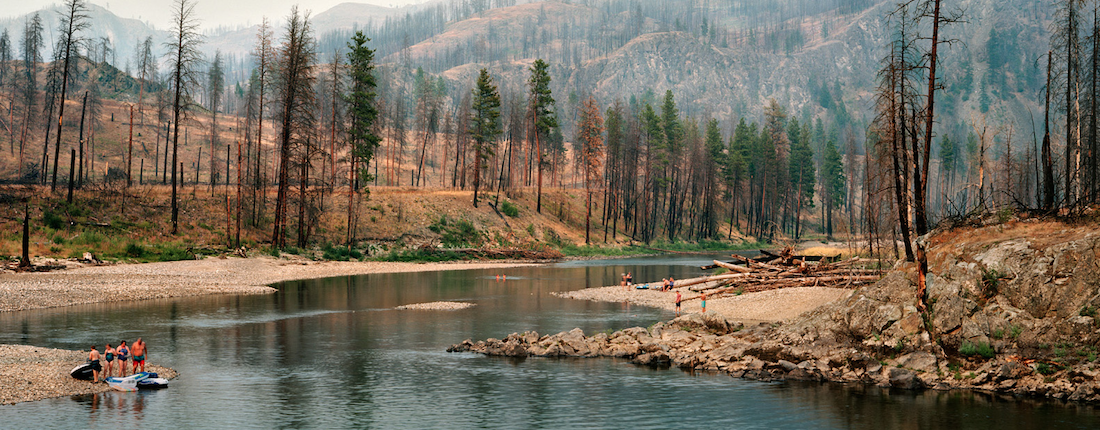Air travel to conferences, talks, and meetings can account for a third or more of the carbon footprint for a typical scholar or university. This event employed a nearly carbon-neutral (NCN) conference approach that reduced greenhouse gas emissions by a factor of 100. For more on “academia’s biggest dirty little secret” and the rationale behind this conference model, as well as details on how to coordinate online events of this sort, see our Overview / Practical Guide.
[easy-share buttons=”facebook,twitter,linkedin,mail” counters=0 native=”no” image=https://live-ehc-english-ucsb-edu-v01.pantheonsite.io/wp-content/uploads/2014/06/01D_UCEN_010-3-2.jpg url=https://live-ehc-english-ucsb-edu-v01.pantheonsite.io/?page_id=12687 facebook_text=Share twitter_text=Tweet linkedin_text=Link text=”#HUMANITIESONTHEBRINK Energy, Environment, Emergency”]
Is it time to panic yet?
The accelerating drumbeat of awful, depressing, terrifying, no-good, exasperating, numbing, rage- and despair-inducing news from around the globe has many of us repeating the same simple question: What can I do? How can one person make a difference, for instance, in the effort to transition to renewable energy systems? Or what influence does a single person have over governments as they deal (or choose not to deal) with sea level rise, climate migration, monster hurricanes and wildfires, and other catastrophes associated with the out-of-control overheating of our planet? What about mass shootings, resurgent white supremacy, the rise of “illiberal democracy,” the weaponization of social media, or any number of the other ills that threaten to metastasize into full-blown planetary emergencies?
Scholars in most mainstream humanities circles, understandably preoccupied with the grim “endgame” (http://connect.chronicle.com/rs/931-EKA-218/images/ChronicleReview_Endgame.pdf) of declining enrollments and budget cuts playing out in academic departments at universities all over the map, have had relatively little to say about the climate and extinction crises. On the other hand, scholars in fields such as ecocriticism and the energy and environmental humanities have been grappling for years with questions about the rapidly worsening state of the biosphere and related social problems. The trouble with many academic conversations about these things is that, however interesting they may be to their participants, they are, indeed, academic conversations: discussions carried out among specialists in language that ordinary people find off-putting or simply unintelligible; discussions that too rarely translate to meaningful action; discussions that perpetuate academic “business as usual,” advancing the careers of individual humanists but mostly failing to spark collective change and the growth of the sorts of inter- and extra-disciplinary alliances that hold the greatest promise of actually transforming the petrocultural impasse we currently inhabit. And, of course, much of the dialogue still happens at conferences with enormous carbon footprints. No matter how convivial and edifying the gatherings are, this fact lends a bitter taste of flygskam (Swedish: “flight shame”) to the proceedings.
As we continue to examine the meaning of the humanities in a time of emergency, scholars must find ways to bridge academic critique and research with the work that non-academic communities are doing in response to the existential threats of what many have come to call the Anthropocene. Extending this impulse to create bridges rather than silos, this ASLE Off-Year Nearly Carbon Neutral (NCN) symposium asks participants to take up questions of urgency and emergency in the context of the overlapping social and ecological crises that mark the present—to think within and against what we might call the “Emergency Humanities.”
Click here to see the original CFP.
For abstracts and bios, click on the participant’s name below or follow these links:
SCHEDULE OF EVENTS
WELCOME
Welcome from UC Santa Barbara: Imagining Just and Sustainable Conferences (Ken Hiltner)
Welcome to Humanities on the Brink (Bart Welling, Jordan Kinder, Jacob Goessling)
PLENARY ADDRESSES
Architecture and the Right of Assembly: Black Lives Matter and the Meadows of Frederick Law Olmsted (Elaine Scarry)
A Sharpening of the Already Present: An Indigenous Materialist Reading of Settler Apocalypse 2020 (Kim TallBear)
Live Q&A About the Academic/Activist Gallery (Jennifer Wenzel and Stephanie LeMenager)
STREAMS, PANELS, AND ACADEMIC/ACTIVIST VIDEOS
(To view talks and Q&A sessions, click on the panel title. Select the speaker’s name for abstract.)
Streams:
- The Emergency Humanities
- Research on the Brink
- Energy Cultures in Crisis
- Ecomediations
- Whose Emergency? Anti- and De-Colonial Thinking
- Emergency Ethics and Poetics
- More-than-Human Ecologies
- Gallery of Academic/Activist Videos
STREAM 1: THE EMERGENCY HUMANITIES
Lydia Nixon (Angelo State University), “‘The Ship of This World on Its Voyage to Eternity’: Allegories of Ecological Apocalypse in Katherine Anne Porter’s Ship of Fools”
Katie Reschenhofer (University of Vienna), “Re-thinking Home in Refugee Picturebooks and Graphic Novels”
Octavia Cade (Massey University), “Observation and Conversation: Post-Apocalyptic Literature and the Young Adult Audience”
Beatriz Revelles-Benavente (University of Granada), “Contemporary Literature: The Politics of Aesthetics in The Handmaid’s Tale”
Caren Irr (Brandeis University), “Envisioning Global Emergency: The Cinematic Language of Godfrey Reggio’s Qatsi Trilogy”
Seon-Myung Yoo (Texas A & M University), “Reading the Anthropocene in Parasite (2019): Class, Society, and Climate Change”
Eric Dean Wilson (CUNY Graduate Center), “‘This Place Is a Mess’: Atlanta’s ‘Woods’ and the Everyday Surrealism of Petro-Capitalist America”
Olusegun Stephen Titus (Obafemi Awolowo University), “Sounding the Environmental Benefits of the COVID-19 Pandemic in Nigeria”
Danielle Crawford (University of California, Santa Cruz), “The Implications of Aid in Times of Emergency: Destructive Storms, Climate Change, and Disaster Militarism”
Christine Daigle (Brock University), “The Posthumanities as a Way to Tackle ‘Emergency’”
Trang Dang (Nottingham Trent University), “Attunement as a Response to Climate Emergency”
Jessica Holmes (University of Washington), “(Mis)Reading at High Tide: Emergent Unreadability in an Age of Emergency”
Davy Knittle (University of Pennsylvania), “The Climate of AIDS: Gentrification, Urgency, and Loss at the End of Nature”
1.4 Auguries of the Anthropocene
Ryan Lawrence (Cornell University), “Chaucer’s Corrupt Air: Atmosphere, Mood, Ecological Crisis”
Alan Marshall (Mahidol University), “Was a Climate Change Catastrophe Really Responsible for Frankenstein?”
Sara Torres (University of Virginia), “Pastoral Access, Activism, and the Plague Archive”
Kathryn Dolan (Missouri University of Science and Technology), “Farming Stories: Robin Wall Kimmerer’s Three Sisters and Honorable Cultivation”
1.5 Antipodean Environmental Literary Studies on the Brink
Jennifer Hamilton (University of New England [Australia]), “The Future of Housework: Feelings about Domestic Labor in All the Beginnings and Indelible Ink”
Sue Pyke (University of Melbourne), “Snaking from Old to New Pathways: A Lyrical Critique”
Rachel Fetherston (Deakin University), “’Part of Their Story’: Nonhuman Narratives in Australian Habitat Stories”
Jessica White (University of Queensland), “Australian Botany on the Brink”
STREAM 2: RESEARCH ON THE BRINK
Anne Pasek, Emily Roehl, Caleb Wellum (University of Alberta), “Virtual Conferences on the Brink: Critical Reflections on Research-Creation and Digital Collaboration in Times of Crisis”
Dan Platt (Graceland University), “Sustainability Studies and the Unsustainable University: A View from the Brink”
Heather Christenson, Graham Dethmers, Eleanor Koehl (HathiTrust), “Against the Day: HathiTrust, Arks and the Emergency of the Present”
DJ Lee (Washington State University) and Petra Kuppers (University of Michigan), “Practices of Hope: Building Creative Community in Ecopoetic Literary Production”
Alexandra Nikoleris, Johannes Stripple, Paul Tenngart, Ludwig Bengtsson-Sonesson (Lund University), “Making Sense of Climate Change: Stories From the AnthropoScenes Competition”
Jennifer Browdy (Bard College at Simon’s Rock), “Purposeful Memoir as a Path to a Thriving Future: The Worldwrights Lead the Way”
2.3 Climate Justice in the Classroom
Kimberly Skye Richards (University of Fraser Valley), “We Are in Crisis, and the Importance of a Petro-Politicized Classroom”
Kyhl Lyndgaard (College of Saint Benedict and Saint John’s University), “Climate Storytelling and Active Learning in Rural America”
Sarah Nolan (University of Colorado, Boulder), “Teaching Environmental Justice with Ana Castillo’s So Far From God”
Judith Wakeman, “Using Cli-Fi to Help Reframe Young People’s Responses to Climate Change”
Massih Zekavat and Tabea Scheel (Europa-Universität Flensburg), “Interdisciplinary Environmental Interventions through Humor and Satire”
Laura Barbas-Rhoden (Wofford College), “Participatory Inclusion in Knowledge Creation in Public Posthumanities Research”
Thomas Asmuth (University of West Florida) and Sara Gevurtz (Auburn University), “Eco-Art and Sciences in an Age of Cynicism”
Irina Beliakova and Elena Plakhina (University of Tyumen), “Environmental Knowledge Production: A Case Study of Journalism Students at the University of Tyumen”
STREAM 3: ENERGY CULTURES IN CRISIS
3.1 Energy Infrastructures, Markets, and Endless Futures
Nicole M. Stahl (West Virginia University), “Environmentalism Un-Earthed: Estranging the Energy Narrative from the Human Experience”
Gabe Eckhouse (University of California, Berkeley), “Carbon Purgatory and the Never Ending End of Oil”
Kameron Sanzo (University of California, Riverside), “Hacking the Loop: Energy Politics in Market-Mediated Recycling”
Mary Le Rouge (Kent State University), “How Literate Responses to Technical Communication Can Promote Practical Responses to Environmental Change”
N.A.J. Taylor (University of British Columbia and University of New South Wales), “‘Marking’ the Australian Nuclear Fuel Cycle as Future Cultural and Environmental Heritage”
3.2 Literatures and Poetics of Energy
Connor Weightman (Charles Sturt University), “Crudely Written: A Petro-Poetry Survey”
Hannah Klaubert (Stockholm University and Justus-Liebig-Universität Gießen), “Nuclear Storyworlds: Writing (Radio)Toxic Wilderness in Mary Mycio’s Wormwood Forest: A Natural History of Chernobyl (2005)”
Melanie Dennis Unrau (Columbia University), “Rig Talk as Disidentification in Peter Christensen’s Rig Talk and Mathew Henderson’s The Lease”
Lisa Schantl (University of Graz), “Humanizing the Non-Human: Aesthetic Reflections of the Anthropocene in Contemporary Petrofiction”
3.3 Cultures of Extraction in U.S. Film and Videogames
Sarah Stanford-McIntyre (University of Colorado, Boulder), “Selling the American ‘Oil Frontier’: Tulsa, Giant, and American Resource Politics during the Early Cold War”
Brian James Leech and George Boone (Augustana College), “Leveling Up by Digging Down: The Portrayal of Mining and Sustainability in Video Game Genres”
José Sebastián Terneus (Miami Dade College), “‘Y’all Sitting Up Here Comfortable:’ Extracting the Afrofuturist Myth from Ryan Coogler’s Black Panther”
3.4 Infrastructuralisms of Brutalism, Justice, and Anarchy
Michael Truscello (Mount Royal University), “The Death Train Narrative and Infrastructural Brutalism in Snowpiercer and Train to Busan”
Delia Byrnes (Allegheny College), “Black Infrastructures of Environmental Justice in Attica Locke’s Houston”
Kelly MacPhail (University of Minnesota, Duluth), “‘Got to Hate Fences’: Infrastructure and Anarchy in Lonely are the Brave (1962)”
STREAM 4: ECOMEDIATIONS
4.1 MultiMediations
Kristen Brown (Dixie State University), “Of Sound Mind and Body: Lessons in Listening to the Jingle Dress Dance”
Robert Geal (University of Wolverhampton), “Surviving Environmental Apocalypse in Film ‘Lifeboats’: Cinema, Psychoanalysis, and the Formal Structure of the Stories We Live By”
Christopher D. Foley (University of Southern Mississippi), “From Cultural Hero to Zero (Emissions): The Ecofeminist Critique of Maui’s Resource Extraction in Disney’s Moana”
4.2 Toxic Mediations
Orchid Tierney (Kenyon College), “’Destruction Is a Real Hidden Investment’: Waste’s Modernity in the Urban Pastoral”
Nicolai Skiveren (Aarhus University), “Cinematic Wasthetics: An Empirical Eco-critique of Slow Violence and Plastic Pollution”
Ruby de Vos (University of Groningen), “On (De)Familiarizing Toxicity: Getting Intimate with Polluted Soil”
Giulia Lepori and Michał Krawczyk (Griffith University), “Regenerative Dwelling in the Age of Collapse: A Story”
Bethany Williams (University of California, Davis), “Embodied Ecocriticism: Action and Agriculture as Environmental Texts”
Andreas Rutkauskas (University of British Columbia, Okanagan), “Wildfire in an Uncertain Time: Photography and Regeneration”
STREAM 5: WHOSE EMERGENCIES? ANTI- AND DECOLONIAL EMERGENCY THINKING
5.1 Against Climate Colonialism
Paula Wieczorek (University of Rzeszów), “Imagining Anthropocene Future: Indigenous Communities, Extractive Industries and the City in Zainab Amadahy’s Resistance (2013)”
Tori Bush (Louisiana State University), “We Are Not Beasts: Deconstructing Colonial Rhetorics of Climate Migration”
Muhammad Manzur Alam (West Virginia University), “Reading South Asian Ecofiction as Counternarratives to Climate Denialism”
5.2 Unsettling Alterity, Unsettling Environments
Lucien Darjeun Meadows (University of Denver), “The Soul, The Snake, The White Road: Adelaide Crapsey’s Translations of Cherokee Incantations”
K. Abilasha (Sri S. Ramasamy Naidu Memorial College), “Every Town Our Hometown/Every Man a Kinsman”
Karen Siu (Rice University), “Naming Asian American Environmental Literature in an Era of Environmental Crisis”
5.3 Theorizing Urgency from the South
Brooke Stanley (University of Delaware), “Urgencies of the Dry City: Cape Town in the Global Imagination”
Akua Banful (Columbia University), “Scientists and Fishermen: Environmental Theory, Myth, and Practice in Amitav Ghosh’s The Hungry Tide”
Rebecca S. Oh (University of Illinois Urbana-Champaign), “Postcolonial Apocalypse and Pessimistic Aesthetics”
STREAM 6: EMERGENCY ETHICS AND POETICS
6.1 Excavating Urgency: Slow Violence, Fast Disaster, and What Lies in Wait
Stacey Balkun (University of Mississippi), “Against Urgency: Post-Apocalyptic Latency Poetics and Living ‘Here’”
Elijah Two Bears (University of Mississippi), “‘Shit Happens’: Excavating Excrement in Contemporary(ish) Ecopoetics”
Ann Fisher-Wirth (University of Mississippi), “Toward a Corona Journal”
Regina Young (University of Mississippi), “Carbon Glow”
Arlene Plevin (Olympic College), “Which Portal Will We Go Through? Environmental Humanities and Activism in a Time of Distant Bodies”
Agata Kowalewska (Warsaw University), “A Speculative Mythology for a Future of Practicing Kinship and Distance”
Dominic Wilkins (Syracuse University), “‘Bearing Witness’ as a Method for the Environmental Humanities”
6.3 Anthropocene Ethics, Anthropocene Materialisms
Dong Yang (University of Georgia), “Affectsphere as an Ecosphere: Thoreau, von Üexkull, and the Anthropocene of Care”
Nathan Schmidt (Indiana University, Bloomington), “Nihilism and Bravery”
Fazila Derya Agis, “Teaching Environmental Ethics with Fünf Freunde [Five Friends] (2012) and Five on Kirrin Island Again (1947)”
Sean Collins (University of Utah), “‘There’s No More Nature’: Beckett and New Materialisms”
Becca Hamilton (University of Cambridge), “‘Things of Each Possible Relation Hashing Against Each Other’: Juliana Spahr’s Climate Crisis Entanglement”
Matthew Ellis (Brock University), “Listing Atrocity: Queering the Epic through Ecopoetics in Dionne Brand’s Inventory”
Emily Simon (Brown University), “Different Daylight: Crises of Visuality and Futurity in Sueyeun Juliette Lee’s Post-Fluorescent Poetics”
STREAM 7: MORE-THAN-HUMAN ECOLOGIES
7.1 From Emergency to Emergent -Cenes
Cara Judea Alhadeff (Independent Scholar), “Climate Justice Now: Transforming the Anthropocene into the Ecozoic Era”
Chantelle Mitchell (Independent Scholar) and Jaxon Waterhouse (University of Tasmania), “Ecological Gyre Theory: Vortextual Thinking After the Ecologic Turn”
Dee Horne (University of Northern British Columbia), “New Imaginaries in the Anthropocene”
Jacqueline Dillion (Pepperdine University), “‘Ancient Permanence’: Thomas Hardy and the Anthropocene”
7.2 Nonhuman Encounters, Entanglements, and Agencies I
Meg Perret (Harvard University), “’Chemical Castration’: White Genocide and Male Extinction in Rhetoric of Endocrine Disruption”
Rebecca A. Durham (University of Montana), “Biophony in the Anthropocene: Changes to the Avian Soundscape Since Thoreau’s Time at Walden Pond” and “Bird Count”
Brian Glaser (Chapman University), “Saltwater Wetlands”
John Charles Ryan (Southern Cross University), “Literary Ethnobotany as a Site of Possibility? Poetry and Traditional Knowledge of Vegetal Life in the Planthroposcene”
Timothy S. Miller (Florida Atlantic University), “Fantasy and Urgency: Climate Change and Rewilding the Imagination in Richard Powers’s The Overstory”
Dixon Bynum (University of Mississippi), “A Nest of Cottonmouths: Snake Lore and White Anxiety in Southern Literature”
Velina Dinkova (University of Colorado, Boulder), “Challenging Humanity: Silence, Loss, and Resilience in the Contemporary French Eco Novel”
7.4 *Topias
Lawrence Coates (Bowling Green State University), “Always Coming Home: Ursula K. Le Guin’s Utopian Aesthetic”
Sheryl M. Medlicott (Independent Scholar), “The Way to Utopia in an Environmental Crisis”
David Latour (Université de Clermont-Ferrand), “Solarpunk: Imagining a Political and Ecological Aesthetics for the Future”
Ariel Kroon (University of Alberta), “Solarpunking the Impasse of the Anthropocene”
7.5 Queer Ecologies & Ecosexualities
Eva Hoffmann (Whitman College), “Queer Zombies and the Apocalypse of Man: Ecocriticism, Post-Feminism, and Queer Theory in Recent German Literature and Film”
Sabine LeBel (University of New Brunswick, Fredericton), “Queer Environmental Futures”
Nicholas Tyler Reich (Vanderbilt University), “Can Truck Sluts Be Environmentalist?”
7.6 Strange Futures
Matthew Morgenstern (Purdue University), “Nobody Knows Anything for Sure: Uncertainty as Monstrosity in Louise Erdrich’s Future Home of the Living God”
Jemma Deer (Harvard University), “Quick: Life and Speed in an Era of Extinction”
Siobhan Angus (Yale University) and Sam Spady (University of Alberta), “2020 Vision: Futurity and Climate Crisis”
Jessica Hurley (George Mason University), “Apocalypse: A Manifesto for the Futureless”
Rachel Hill (Independent Scholar), “‘Kindling Suns’: Decolonial Spaceflight Imaginaries”
8. Gallery of Academic/Activist Videos
Dominic Boyer (Rice University)
Saskia Cornes (Duke University)
Ashley Dawson (City University of New York)
Bishnupriya Ghosh (University of California, Santa Barbara)
Aubrey Streit Krug (The Land Institute)
Sarah Jacquette Ray (Humboldt State University)


